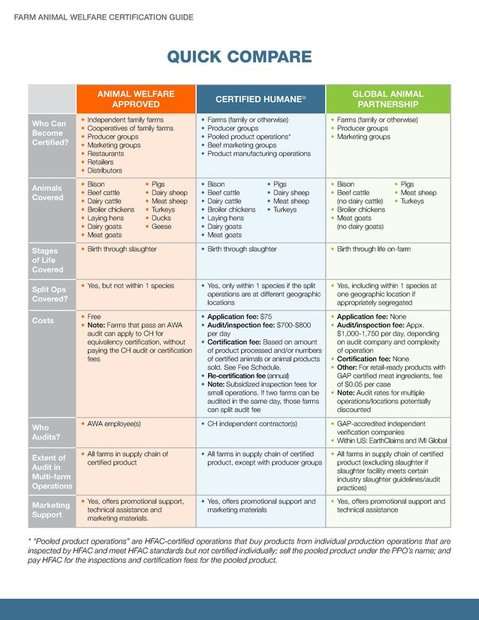Farm Animal Welfare Certification Guide is available for download
By Diego Flammini
Assistant Editor, North American Content
Farms.com
Livestock farmers considering having their products recognized as “certified humane” or other similar designations now have a tool available to help them identify the necessary requirements.
Along with the ASPCA, Vermont Law School’s Center for Agriculture and Food Systems created the Farm Animal Welfare Certification Guide.
The downloadable guide, which is also available as a hard copy, include comparisons between three certification programs (Animal Welfare Approved, Certified Humane and Global Animal Partnership), the processes required to become certified and an explanation of funding options available to farmers to assist in the certification process.

ASPCA said putting all the information in one guide allows for transparency.
“The lack of welfare standards or transparency in (commercial) animal agriculture is not just endangering to farm animals and misleading to consumers, it also puts higher-welfare farmers at a disadvantage,” the ASPCA said on its website.
The guide also includes case studies of farmers from across the United States who received these designations.
One case study focuses on the Ward Family Farm, an egg farm in Monroe, New Hampshire that decided to become Certified Humane in 2003.
According to the case study, the farm struggled in the 1980s. But by choosing this program, the family was able to expand its operation to include nine barns, 40,000 hens and to process more than 100,000 eggs daily.
Farms.com has reached out to other farmers and the Vermont Farm Bureau for comments on the publication.